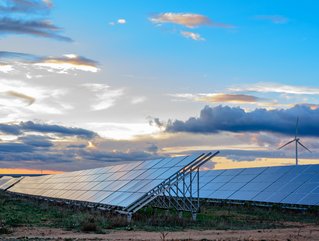Avista: sustainable future starts with efficient utilities accessibility

Serving four northwestern US states of Washington, Idaho, Oregon and Montana, and providing electricity to 389,000 customers and natural gas to 357,000, Avista is a utility provider which strives to serve its customers differently. For Pat Dever, Chief Data Strategist at Avista, this means committing to an achievable sustainability strategy that serves all of Avista’s customers regardless of socioeconomic status, a democratic data system to provide innovative insights and ensuring the grid’s readiness for a carbon-efficient future. Avista is committed to providing carbon neutral electricity by the end of 2027 and to deliver 100% clean energy by 2045.
When working with an energy grid that has primarily served a fossil fuel economy for decades, ensuring the grid is prepared for a shift towards a higher percentage of the population using greener energy and technologies is integral to a successful transition.
“That’s really one of our biggest challenges, I think,” says Dever. “Our distribution systems are ageing. We are actively investing and updating those distribution systems, but the capacity for energy was based on the past, and so as technologies such as electric vehicles (EVs) come into place, that is going to put a greater load on the system.”
As EVs gradually become more widespread, Avista is utilising this intermediary period to make investments in the system to support future capacity demands. Using data to understand the penetration of EVs, the data analysis team can make predictive analytic decisions and invest in the areas that need it most. Looking at data in a granular fashion to understand how a consumer is using their energy, Avista can help customers make different, more sustainable and energy efficient choices in their home systems.
“Is their furnace inefficient? Is their air conditioning inefficient? Is their refrigerator inefficient? These are the things we are trying to understand,” Dever explains.
“If we can create programmes and opportunities to educate customers and build awareness about their energy usage, we can engage them to possibly make different choices about their energy consumption. At the same time, we can avoid or delay the need to invest in building or using additional power generation or infrastructure. It’s a win-win outcome.”
An energy sharing market is an opportunity that Avista believes to be beneficial to this culture of conscious energy. A transactional system in society, whereby neighbours can share energy based on their ability to generate excess power - for example through solar panels on rooftops - could allow people to choose the type of energy they want to consume.
“Today we have a hub and spoke system of utility generation, with the utility company being the hub and customers being spokes. In the future, we believe that we could see a ‘mesh type’ energy sharing system, with the same or similar infrastructure that we have today, but the transactions will be different,” says Dever.
SEE ALSO:
-
Corestate Capital drives business optimisation alongside authentic integration of ESG practices
-
Sodexo Australia: committed to waste management, sustainable procurement and Indigenous employment
Allowing individuals to manage their consumption or generation, independent of the utility company, is the optimum way to prepare for the ‘next big thing’ in sustainable energy for Avista. “As new technologies such as EVs gain popularity, how do we support that demand in an environmentally friendly way? We feel that providing a technology, a platform to allow for an energy sharing opportunity is the place for that,” Dever says.
Effective data management and analysis is integral to this development. Democratising data across the enterprise, Dever and his team can expose data appropriately to those in the company that have a need to use it in their day-to-day jobs. In partnership with Alation, data strategists at Avista can expose data in a user-friendly way to business analysts, allowing them to search in plain English terms for information. An analyst can then use that data to derive insights and then develop products and services to improve the experience for customers, whether that is assisting them to make their current energy consumption more efficient, or provide support with new, sustainable approaches to energy that may suit them.
For an effective, universal transition to green energy, utility companies need to ensure that their sustainable products and services are accessible to all, regardless of income and socioeconomic status. In the cities which Avista serves, there is a significant number of low-income families; ensuring the sustainable transformation is sensitive to their needs and that power prices remain as affordable as possible is crucial.
Data strategy is used in this capacity too. By identifying customers that struggle with payments and collecting data based on consumption, Avista can work with local agencies to ensure low-income customers are appropriately connected to gain assistance. Partnering with Spokane Neighborhood Action Partners (SNAP) - an organisation local to Avista’s head office in Spokane, Washington - the company can better identify and assist local people who are vulnerable, understanding their needs and how their energy efficiency can be improved to help save costs while improving sustainability.
Partnering digitisation, data usage and environmentalism in the utilities sector is an innovative approach to catering to the growing demand for sustainable energy provisions. In a part of the United States that cannot benefit as much from solar power due to long winters and reduced sunlight, Avista is creative with its initiatives in energy sharing, alternative power generation methods and considering how best to serve its diverse socioeconomic market. Its approach displays how commercially-widespread sustainability is best provided from the ground up - with utility providers using data analysis to assist consumers as they strive towards the goal of a 100% clean energy grid in the not-so-distant future.






